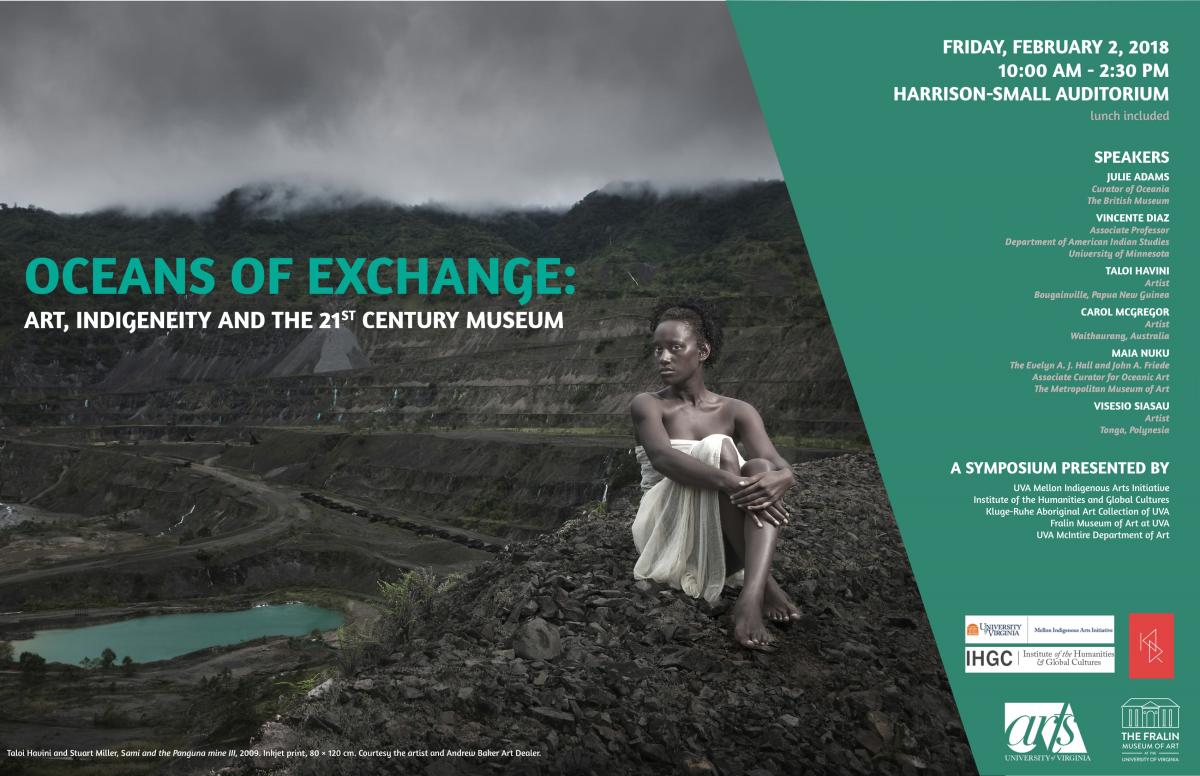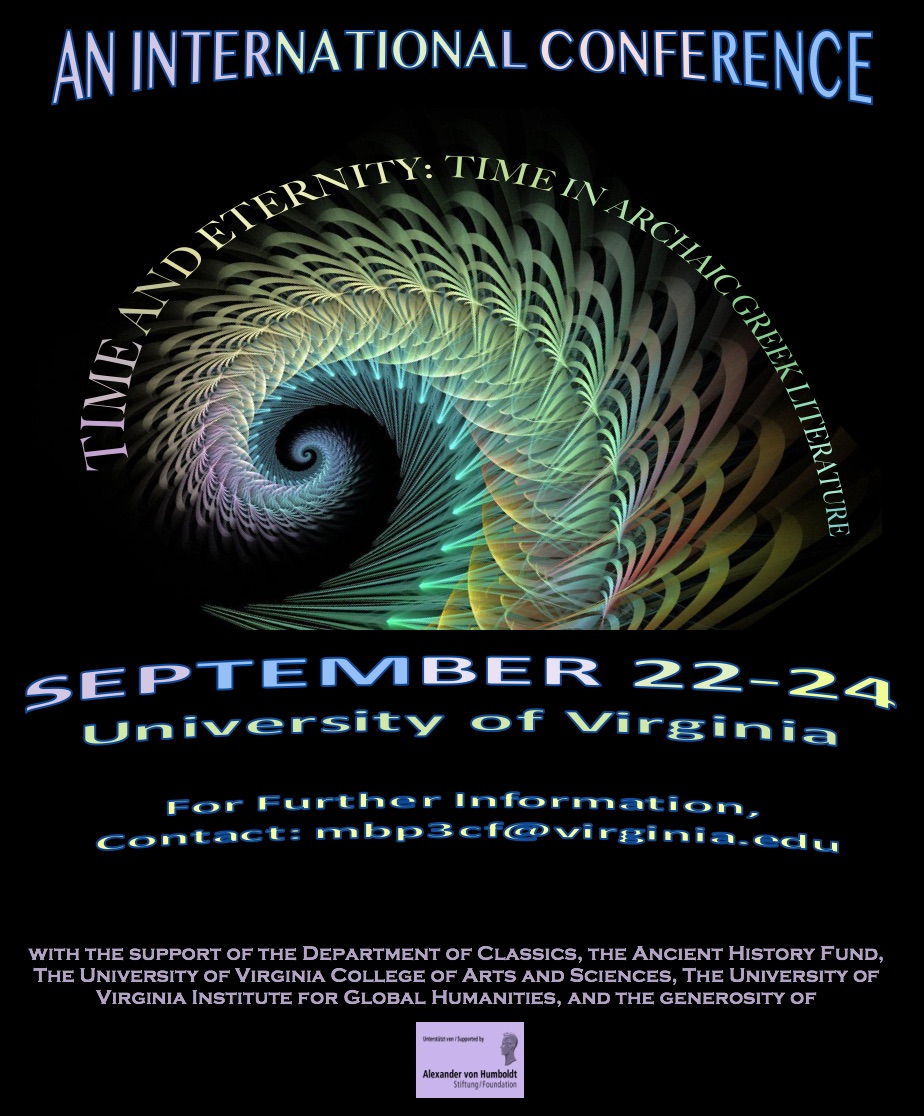Events Archive

Achille Mbembe, "Negative Messianism in the Age of Animism"
September 18, 2017
Wilson 142 | 5:00 pm - 6:30 pmAchille Mbembe, "Negative Messianism in the Age of Animism"
September 18, 2017
Wilson 142 | 5:00 pm - 6:30 pmThe Institute for the Humanites and Global Cultures cordially invites students and faculty to attend a lecture and a workshop by Professor Achille Mbembe (U of Witwatersrand). Both events will feature Mbembe's new book, Critique of Black Reason (2017 - Duke UP). Other workshop panelists include Laurent Dubois (Duke), Juan Obarrio (Johns Hopkins) and Christina Mobley (UVA).
In order to foster an intimate conversation, faculty and graduate students who wish to participate in the workshop (9/18, Wilson 142, 9:30 a.m.-1:30 p.m.) should register here. Workshop readings drawn from Critique of Black Reason are available through the registration form. Space is limited, and refreshments and lunch will be available.
Professor Mbembe will deliver his lecture entitled "Negative Messianism in the Age of Animism" in Wilson Hall 142, from 5-6:30. There is no registration required for this event.
About the book:
In Critique of Black Reason eminent critic Achille Mbembe offers a capacious genealogy of the category of Blackness—from the Atlantic slave trade to the present—to critically reevaluate history, racism, and the future of humanity. Mbembe teases out the intellectual consequences of the reality that Europe is no longer the world's center of gravity while mapping the relations among colonialism, slavery, and contemporary financial and extractive capital. Tracing the conjunction of Blackness with the biological fiction of race, he theorizes Black reason as the collection of discourses and practices that equated Blackness with the nonhuman in order to uphold forms of oppression. Mbembe powerfully argues that this equation of Blackness with the nonhuman will serve as the template for all new forms of exclusion. With Critique of Black Reason, Mbembeoffers nothing less than a map of the world as it has been constituted through colonialism and racial thinking while providing the first glimpses of a more just future.
About Achille Mbembe
Achille Mbembe is Research Professor in History and Politics at the Wits Institute for Social and Economic Research, University of the Witwatersrand, Johannesburg. He is coeditor of Johannesburg: The Elusive Metropolis, also published by Duke University Press, and the author of On the Postcolony as well as several books in French.

Achille Mbembe, "Critique of Black Reason" Workshop
September 18, 2017
Wilson 142 | 9:30 am - 1:30 pmAchille Mbembe, "Critique of Black Reason" Workshop
September 18, 2017
Wilson 142 | 9:30 am - 1:30 pmThe Institute for the Humanites and Global Cultures cordially invites students and faculty to attend a lecture and a workshop by Professor Achille Mbembe (U of Witwatersrand). Both events will feature Mbembe's new book, Critique of Black Reason (2017 - Duke UP). Other workshop panelists include Laurent Dubois (Duke), Juan Obarrio (Johns Hopkins) and Christina Mobley (UVA).
In order to foster an intimate conversation, faculty and graduate students who wish to participate in the workshop (9/18, Wilson 142, 9:30 a.m.-1:30 p.m.) should register here. Workshop readings drawn from Critique of Black Reason are available through the registration form. Space is limited, and refreshments and lunch will be available.
Professor Mbembe will deliver his lecture entitled "Negative Messianism in the Age of Animism" in Wilson Hall 142, from 5-6:30. There is no registration required for this event.
About the book:
In Critique of Black Reason eminent critic Achille Mbembe offers a capacious genealogy of the category of Blackness—from the Atlantic slave trade to the present—to critically reevaluate history, racism, and the future of humanity. Mbembe teases out the intellectual consequences of the reality that Europe is no longer the world's center of gravity while mapping the relations among colonialism, slavery, and contemporary financial and extractive capital. Tracing the conjunction of Blackness with the biological fiction of race, he theorizes Black reason as the collection of discourses and practices that equated Blackness with the nonhuman in order to uphold forms of oppression. Mbembe powerfully argues that this equation of Blackness with the nonhuman will serve as the template for all new forms of exclusion. With Critique of Black Reason, Mbembeoffers nothing less than a map of the world as it has been constituted through colonialism and racial thinking while providing the first glimpses of a more just future.
About Achille Mbembe
Achille Mbembe is Research Professor in History and Politics at the Wits Institute for Social and Economic Research, University of the Witwatersrand, Johannesburg. He is coeditor of Johannesburg: The Elusive Metropolis, also published by Duke University Press, and the author of On the Postcolony as well as several books in French.

Network Analysis Workshop with Scott Weingart
August 31, 2017
Wilson 133 | 9:00 am - 12:00 pmNetwork Analysis Workshop with Scott Weingart
August 31, 2017
Wilson 133 | 9:00 am - 12:00 pmScott Weingart is a Digital Humanities Specialist at Carnegie Mellon University and a historian of science. Weingart will be leading a three-hour workshop on network analysis in Wilson 133 on Thursday, August 31st from 9am-12pm. Please bring your own laptop and, if at all possible, be sure Gephi is already installed. Weingart will introduce key concepts in network analysis and then lead us through a very hands-on workshop.
Please rsvp with Chad Wellmon (mcw9d@virginia.edu) in order to ensure you spot and your food. No prior knowledge is assumed or necessary.

Workshop on Global Water (convened by Christian McMillen)
May 8, 2017
TBD | 10:00 am - 3:00 pmWorkshop on Global Water (convened by Christian McMillen)
May 8, 2017
TBD | 10:00 am - 3:00 pm
Davide Domenici Roundtable: "Material Indians, Early Modern Circulation of Ethnographica
May 4, 2017
Wilson 142 | 2:30 pm - 4:00 pmDavide Domenici Roundtable: "Material Indians, Early Modern Circulation of Ethnographica
May 4, 2017
Wilson 142 | 2:30 pm - 4:00 pmPlease join us on Thursday, May 4, from 2:30-4 pm in Wilson 142 for a roundtable discussion with Professor Davide Domenici (Dipartimento di Storia Culture Civiltà/Department of History, Culture, and Civilization, University of Bologna).
As part of Professor Domenici's week-long visit to UVa, sponsored by the Institute of the Humanities & Global Cultures, we'll discuss "Material Indians: Early Modern Circulation of Ethnographica and the Construction of the Indies as a Global Category."
For more information, please contact professors Allison Bigelow and Ricardo Padrón.

Workshop on the Historical Novel and Ethnographic Writing with Amitav Ghosh
April 28, 2017
Brooks Hall Commons | 10:30 am - 12:30 pmWorkshop on the Historical Novel and Ethnographic Writing with Amitav Ghosh
April 28, 2017
Brooks Hall Commons | 10:30 am - 12:30 pmA workshop on the historical novel and ethnographic writing with members of the Mellon Global South Lab and Department of Anthropology students and faculty.

Amitav Ghosh Public Lecture - From Bombay to Canton and Back: Traveling the Indian Ocean Opium Route
April 26, 2017
Nau 101 | 4:30 - 6:00 p.m.Amitav Ghosh Public Lecture - From Bombay to Canton and Back: Traveling the Indian Ocean Opium Route
April 26, 2017
Nau 101 | 4:30 - 6:00 p.m.Public Lecture, 4.30pm-6.00pm
Nau Hall 101
From Bombay to Canton: Traveling the Indian Ocean Opium Route
Guangzhou (also known as Canton) is one of the world’s great cosmopolitan entrepots. In the 18th and early 19th centuries, it was through this city, and its environs, that opium was funneled into China by British, American and Indian merchants. This trade was to have an enormous impact , not just on China but the whole world: its influence on India was especially significant, for the subcontinent was the world's leading opium-producing region under the British Raj. This talk explores Guangzhou as an Indian trader might have seen it in the 19th century.

"Language at the Bar: James Joyce, Myles Joyce and the 1882 Maamtrasna Murders (Galway, Ireland) Revisited," Prof. Margaret Kelleher Public Lecture
April 20, 2017
Bryan Faculty Lounge | 4:30 - 6:00 pm"Language at the Bar: James Joyce, Myles Joyce and the 1882 Maamtrasna Murders (Galway, Ireland) Revisited," Prof. Margaret Kelleher Public Lecture
April 20, 2017
Bryan Faculty Lounge | 4:30 - 6:00 pmBiography
Professor Margaret Kelleher was awarded the Chair of Anglo-Irish Literature and Drama in 2012. For the previous five years, she was founding director of An Foras Feasa: the Institute for Research in Irish Historical and Cultural Traditions, at NUI Maynooth. Her books include The Feminization of Famine (published by Duke UP and Cork UP, 1997) and the landmark publication The Cambridge History of Irish Literature (2006), co-edited with Philip O¿Leary. She was a contributing editor to Field Day Anthology Volumes 4 and 5, and editor of the special issue on the Irish Literary Revival forIrish University Review (2003). Her primary research interests include nineteenth-century literature, famine literature, women¿s writings, cultural history, and the historical relationship between literature in English and Irish.
She was awarded an IRCHSS Senior Project Fellowship in 2011 to create an electronic version of the Loebers' Guide to Irish Fiction (operative from November 2012 at http://www.lgif.ie) and has worked with colleagues in An Foras Feasa on a number of groundbreaking digital humanities projects. She was Principal Investigator (with John Keating) of the PRTLI 4 funded project 'Humanities, Technology and Innovation" 2007-2011 (grant award ¿5.8 m) and NUI Maynooth's Principal Investigator from 2011-2012 for the PRTLI 5 funded Digital Arts and Humanities PhD programme (grant award ¿750,000). Her current research project is a study of bilingual culture in nineteenth-century Ireland.
A leading advocate for Irish studies internationally, Professor Kelleher is Chairperson of the International Association for the Study of Irish Literatures, Chair of the Irish Film Institute and a member of the Humanities Committee of Science Europe. Educated at University College Cork and Boston College, she has been visiting Professor at Concordia University Montreal, University of São Paulo, Boston College and Beijing Foreign Studies University, and was recently awarded a visiting fellowship at St John's College, Cambridge. She is Director of the MA in Anglo-Irish Literature in the School of English, Drama and Film.

Mellon Fellows Symposium (with Carmen Lamas, Christian McMillen, Enrico Cesaretti)
April 14, 2017
Wilson 142 | 10:00 amMellon Fellows Symposium (with Carmen Lamas, Christian McMillen, Enrico Cesaretti)
April 14, 2017
Wilson 142 | 10:00 amIHGC Presents
Mellon Fellows Symposium
Friday April 14, 2017
10.00am-1.30pm
142 Wilson Hall
Enrico Cesaretti, Associate Professor of Italian
"Slick Territories: Two Oil Encounters Italian Style"
10:00 am - 10:45 am
Carmen Lamas, Assistant Professor of Latina/o Literature and Latina/o Studies, Department of English
"Archival Interventions in the Latino Nineteenth Century"
10:45 am - 11:30 am
Christian McMillen, Professor, Department of History
"Clean Drinking Water and Sanitation in the Global South, 1970 to the Present"
11:30 am - 12:15 pm
Lunch
12:15 pm - 1:30 pm

"Social Movements: Where Have All the Leaders Gone?" Prof. Michael Hardt Public Lecture
April 11, 2017
Nau 101 | 5:30 pm - 7:00 pm"Social Movements: Where Have All the Leaders Gone?" Prof. Michael Hardt Public Lecture
April 11, 2017
Nau 101 | 5:30 pm - 7:00 pmWe continue to witness each year the eruption of “leaderless” social movements. From North Africa and the Middle East to Europe, the Americas, and East Asia, movements have left journalists, political analysts, police forces, and governments disoriented and perplexed. Activists too have struggled to understand and evaluate the power and effectiveness of horizontal movements. The movements have proven able to pose democratic ideals, sometimes to force reforms, and to pressure and even overthrow regimes – and, indeed, widespread social processes have been set in motion in coordination with or as consequence of them – but the movements tend to be short-lived and seem unable to bring about lasting social transformation. Many assume that if only social movements could find new leaders they would return to their earlier glory and be able to sustain and achieve projects of social transformation and liberation. Where, they ask, are the new Martin Luther King Jr.s, Rudi Dutschkes, Patrice Lumumbas, and Steve Bikos? Where have all the leaders gone? Leadership has become a conundrum that today’s movements seem unable to solve, but the leadership problem in revolutionary and progressive movements is not entirely new. In this lecture, Hardt will use some examples from past theory and practice to situate and clarify some of the issues and alternatives involved in the organization of social movements today.
Time: 5:30 - 7:00 pm
Location: Nau Hall 101
Biography
Michael Hardt is Professor of Literature in the Department of Romance Studies at Duke University. His writings explore the new forms of domination in the contemporary  world as well as the social movements and other forces of liberation that resist them. In the Empire trilogy -- Empire (2000), Multitude (2004), and Commonwealth (2009) -- he and Antonio Negri investigate the political, legal, economic, and social aspects of globalization. They also study the political and economic alternatives that could lead to a more democratic world. Their pamphlet Declaration (2012) attempts to articulate the significance of the encampments and occupations that began in 2011, from Tahrir Square to Zuccotti Park, and to recognize the primary challenges faced by emerging democratic social movements today.
world as well as the social movements and other forces of liberation that resist them. In the Empire trilogy -- Empire (2000), Multitude (2004), and Commonwealth (2009) -- he and Antonio Negri investigate the political, legal, economic, and social aspects of globalization. They also study the political and economic alternatives that could lead to a more democratic world. Their pamphlet Declaration (2012) attempts to articulate the significance of the encampments and occupations that began in 2011, from Tahrir Square to Zuccotti Park, and to recognize the primary challenges faced by emerging democratic social movements today.

"Excavating Contemporary Capitalism: Toward a Critique of Extraction Writ Large," Prof. Sandro Mezzadra Public Lecture
April 10, 2017
Wilson 142 | 4:30 pm - 6:00 pm"Excavating Contemporary Capitalism: Toward a Critique of Extraction Writ Large," Prof. Sandro Mezzadra Public Lecture
April 10, 2017
Wilson 142 | 4:30 pm - 6:00 pmTime: 4:30 - 6:00 pm
Location: Wilson142
Is globalization over in the age of Trump? The talk will take this question as a point of departure and will focus on actually existing global processes in order to suggest that what is currently at stake is rather a set of conflicts and tensions surrounding the direction of globalization and the organization of its spaces. It will attempt to shed light on the specific “rationality,” or “logic” underlying operations of capital in strategically important “sectors” of economic activity – such as extraction, logistics, and finance. The talk aims to show that such operative logic eschews containment and articulation by the nation state and has rather “global” characteristics. It argues for the need to work toward an expanded notion of extraction and to look at the ways in which extraction writ large shapes contemporary capitalism. The talk will end by asking a set of important questions regarding a politics capable of effectively confronting this increasingly extractive capitalism and opening up new vistas of liberation and life beyond the rule of capital.
Biography
Sandro Mezzadra teaches political theory at the University of Bologna. In the last decade his work has centered on the relations between globalization, migration and 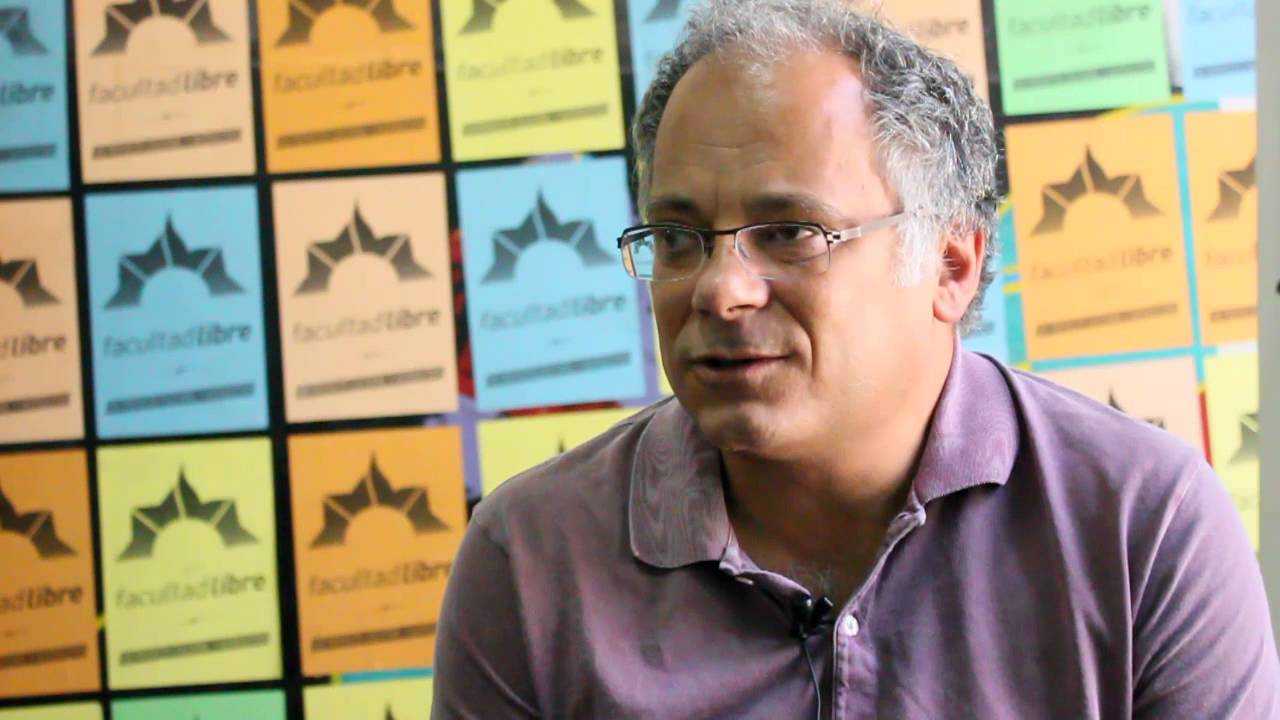 capitalism as well as on postcolonial criticism. He is an active participant in the ‘post-workerist’ debates and one of the founders of the website www.euronomade.info. Among his books: Diritto di fuga. Migrazioni, cittadinanza, globalizzazione (“The right to escape: Migration, citizenship, globalization”, ombre corte, 2006), La condizione postcoloniale. Storia e politica nel presente globale (“The postcolonial condition: History and politics in the global present”, ombre corte, 2008) and Nei cantieri marxiani. Il soggetto e la sua produzione (“In the Marxian Workshops. The Subject and its Production”, Manifestolibri, 2014). With Brett Neilson he is the author of Border as Method, or, the Multiplication of Labor (Duke University Press, 2013).
capitalism as well as on postcolonial criticism. He is an active participant in the ‘post-workerist’ debates and one of the founders of the website www.euronomade.info. Among his books: Diritto di fuga. Migrazioni, cittadinanza, globalizzazione (“The right to escape: Migration, citizenship, globalization”, ombre corte, 2006), La condizione postcoloniale. Storia e politica nel presente globale (“The postcolonial condition: History and politics in the global present”, ombre corte, 2008) and Nei cantieri marxiani. Il soggetto e la sua produzione (“In the Marxian Workshops. The Subject and its Production”, Manifestolibri, 2014). With Brett Neilson he is the author of Border as Method, or, the Multiplication of Labor (Duke University Press, 2013).

Beyond Representation: Creative & Critical Practice in the Environmental Humanities
April 8, 2017
Wilson 142 | 8:30 amBeyond Representation: Creative & Critical Practice in the Environmental Humanities
April 8, 2017
Wilson 142 | 8:30 amMany conversations in environmental humanities involve selecting and interpreting scientific data, then adding contributions from humanities fields to that quantitative base. Our symposium asks what happens when the equation is flipped—when we assume that many environmental issues start with the humanities. What questions are we best positioned to pose, and to explore? How can scientists help us, instead of the other way around? How are the humanities particularly suited to explore issues of environmental justice at the intersection of creative and critical practice? The symposium will explore these questions through interdisciplinary panels, workshops, and a reading by poet Cecily Parks. Panel topics include Critical Cartography, African American Environmentalisms, and Indigenous Environmental Justice.
For more information, visit the official event page.

Political Thinking at the Margins
April 6, 2017
1 West Range, Hotel A | 2:00 pmPolitical Thinking at the Margins
April 6, 2017
1 West Range, Hotel A | 2:00 pmApril 6-7, 2017
University of Virginia
THIS TWO DAY CONFERENCE brings together established and emerging scholars of colonialism, settler-colonialism, and race for a discussion of law, violence, borders, war, property, sovereignty, the global, and the humanities in different contexts around the globe. While our approach is interdisciplinary and comparative, we acknowledge challenges to Western canons and to the “comparative” turn in the humanities; and we are also mindful that comparison is a political activity that may reinforce existing distinctions between West and non-West, settler and native, white and non-white, civilized and uncivilized, and so forth. Accordingly, the conference seeks to elicit connections and understand the disconnections between bodies of thought that have, in contemporary academic formations, remained distinct. Visit the official website for more information.
Each panel will take place at the Center for Global Inquiry + Innovation, 1 West Range, Hotel A. The Keynote Address will be at Nau Hall, 101.
Sponsored by
The Buckner W. Clay Endowment for the Humanities
The Institute of the Humanities and Global Culture
The Page-Barbour Foundation
The Center for Global Inquiry and Innovation
and the Department of Politics

The Global/Contemporary Symposium
March 31, 2017
Nau 101 | 10:30 am - 7:30 pmThe Global/Contemporary Symposium
March 31, 2017
Nau 101 | 10:30 am - 7:30 pmWhat is gained and what is lost, what is revealed and what is obscured by understanding the moment in which we live as global? This one-day symposium at the University of Virginia will explore the alignment of two dominant terms within the academy, the “contemporary” and the “global,” to question, challenge, and expand the relationship between them. We hope to interrogate the ways in which the phenomena that draw the attention of scholars of the contemporary—the rise of digital media, an increasingly inter- and supra-national economy, technologies of migration and communication, far-reaching environmental degradation, and political unrest—have become the prominent reference points for writing about our current moment. While the time in which we live is inarguably global, this schema can obscure alternate ones and allow us to forget that the characteristics marking our era as “global” have long and complex histories of their own. Inviting a vibrant group of scholars, we hope that this symposium might lead to longer-term collaborations and an intellectual community that will supplement the ties we hold to our own departments and institutions—indeed, to create a wider-reaching and even global network of discourse surrounding this subject. For more information, visit the Global/Contemporary Symposium website.

Joan of Arc/Afterlives Symposium
March 30, 2017
Old Cabell Hall | 8:00 pmJoan of Arc/Afterlives Symposium
March 30, 2017
Old Cabell Hall | 8:00 pmClick here for tickets ($12 general / free for students)
A series of curricular, co-curricular, creative, and academic events around a movie screening of Carl Theodor Dreyer’s silent film La Passion de Jeanne d’Arc presented with live music by the Orlando Consort. Visit the main page for a full schedule of activities. 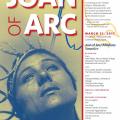
“Voices Appeared: La Passion de Jeanne d’Arc and the Orlando Consort” is a live multimedia performance and historical reconstruction of Carl Theodor Dreyer’s 1928 silent film La Passion de Jeanne d’Arc. “Voices Appeared” features live musical accompaniment to the film, curated and performed by the Orlando Consort. Inspired by Joan of Arc’s gnomic description of angels appearing before her, “Voices Appeared” reconciles the silent film medium with Joan’s narrative experience of hearing voices. The project uses vocal works from the early part of the fifteenth century, when Joan was alive and active, providing historical context as well as musical commentary on her psyche while in captivity, especially as a gender and religious minority figure.
Cited as “simultaneously ravishing and reverential” by the Los Angeles Times and “enthralling” by The London Evening Standard, the Orlando Consort, formed in 1988 by the Early Music Network of Great Britain, is one of Europe’s most expert and consistently challenging groups performing repertoire from the years 1050 to 1550. Their work successfully combines captivating entertainment and fresh scholarly insight. The unique imagination and originality of their programming, together with their superb vocal skills, has marked the Consort out as the outstanding leaders of their field. More infomation at http://www.orlandoconsort.com/

"Bleak Liberalism and the Question of Therapeutic Criticism," Prof. Amanda Anderson Public Lecture
March 28, 2017
Nau 101 | 5:30 pm - 7:00 pm"Bleak Liberalism and the Question of Therapeutic Criticism," Prof. Amanda Anderson Public Lecture
March 28, 2017
Nau 101 | 5:30 pm - 7:00 pmThis talk will explore the demands of criticism at the present moment, assessing a number of recent calls for new methods, including those that seek to promote a new mood for criticism. The arguments of my recent book, Bleak Liberalism, will be discussed in relation to these larger debates, and a case will be made for the importance of the tradition of normative critical theory to the challenges we face both inside and outside the academy.
Biography
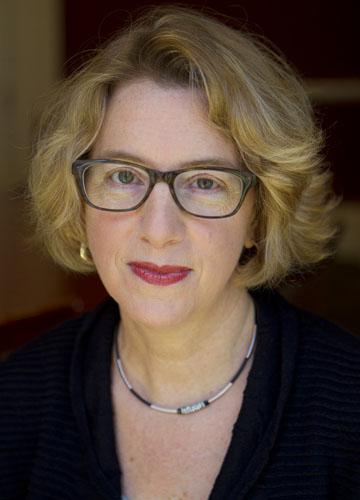 Amanda Anderson joined the Brown faculty in 2012 as the Andrew W. Mellon Professor of Humanities and English and became Director of the Cogut Center for the Humanities in 2015. She is a literary scholar and theorist who has written on nineteenth-century literature and culture as well as on contemporary debates in the humanities. Her books include Bleak Liberalism (Chicago, 2016), The Way We Argue Now: A Study in the Cultures of Theory (Princeton, 2006), The Powers of Distance: Cosmopolitanism and the Cultivation of Detachment (Princeton, 2001), and Tainted Souls and Painted Faces: The Rhetoric of Fallenness in Victorian Culture (Cornell, 1993). From 2008-2014, she served as the director of an interdisciplinary summer institute, the School of Criticism and Theory, which is hosted by Cornell University. Prior to joining the Brown faculty, she taught at Johns Hopkins University, where she served as department chair from 2003-2009.
Amanda Anderson joined the Brown faculty in 2012 as the Andrew W. Mellon Professor of Humanities and English and became Director of the Cogut Center for the Humanities in 2015. She is a literary scholar and theorist who has written on nineteenth-century literature and culture as well as on contemporary debates in the humanities. Her books include Bleak Liberalism (Chicago, 2016), The Way We Argue Now: A Study in the Cultures of Theory (Princeton, 2006), The Powers of Distance: Cosmopolitanism and the Cultivation of Detachment (Princeton, 2001), and Tainted Souls and Painted Faces: The Rhetoric of Fallenness in Victorian Culture (Cornell, 1993). From 2008-2014, she served as the director of an interdisciplinary summer institute, the School of Criticism and Theory, which is hosted by Cornell University. Prior to joining the Brown faculty, she taught at Johns Hopkins University, where she served as department chair from 2003-2009.
In her latest work, Bleak Liberalism (Chicago, 2016), Professor Anderson asks: Why is liberalism so often dismissed by thinkers from both the left and the right? To those calling for wholesale transformation or claiming a monopoly on “realistic” conceptions of humanity, liberalism’s assured progressivism can seem hard to swallow. Bleak Liberalism makes the case for a renewed understanding of the liberal tradition, showing that it is much more attuned to the complexity of political life than conventional accounts have acknowledged.
Amanda Anderson examines canonical works of high realism, political novels from England and the United States, and modernist works to argue that liberalism has engaged sober and even stark views of historical development, political dynamics, and human and social psychology. From Charles Dickens’s Bleak House and Hard Times to E. M. Forster’s Howards End to Doris Lessing’s The Golden Notebook, this literature demonstrates that liberalism has inventive ways of balancing sociological critique and moral aspiration. A deft blend of intellectual history and literary analysis, Bleak Liberalism reveals a richer understanding of one of the most important political ideologies of the modern era.

Global History of Black Girlhood Conference
March 17, 2017
Harrison Institute Auditorium | 9:00 amGlobal History of Black Girlhood Conference
March 17, 2017
Harrison Institute Auditorium | 9:00 amThe Global History of Black Girlhood Conference will gather over forty scholars, artists and activists to present recent research, creative works, and political organizing that places the emerging field of black girls' history within a global framework. Presentations will focus on black girls' pasts in Africa, Europe, and the Americas, addressing themes including kinship, bondage, activism, justice, pleasure, play, and representation. The conference will include a keynote panel on “Global Black Girl Politics” and a reading by Tayari Jones from her novel Silver Sparrow. For more information on the conference please contact globalblackgirlhood@gmail.com. For more on the History of Black Girlhood Network, please visit https://historyofblackgirlhood.org
emerging field of black girls' history within a global framework. Presentations will focus on black girls' pasts in Africa, Europe, and the Americas, addressing themes including kinship, bondage, activism, justice, pleasure, play, and representation. The conference will include a keynote panel on “Global Black Girl Politics” and a reading by Tayari Jones from her novel Silver Sparrow. For more information on the conference please contact globalblackgirlhood@gmail.com. For more on the History of Black Girlhood Network, please visit https://historyofblackgirlhood.org

"What is a Poem?" Inaugural Symposium of the Center for Poetry and Poetics
March 17, 2017
Rotunda Dome Room | 10:00 am"What is a Poem?" Inaugural Symposium of the Center for Poetry and Poetics
March 17, 2017
Rotunda Dome Room | 10:00 amIs a poem more like a song or a shipping container? What was a poem in the seventeenth century, and what is it in the digital age? Why poetry, anyway? Join our world-class speakers as they explore these and other questions. The symposium will conclude with a conversation with former US Poet Laureate Rita Dove. Visit the Center for Poetry & Poetics website for more information.
"WHAT IS A POEM?"
Friday, March 17, 2017
The Rotunda Dome Room
10am-5pm
10am - Noon - Panel 1
Roland Greene
“Apollo Barroco: What Was a Poem in the Seventeenth Century?”
Anjali Nerlekar
“The Poem and the Ocean-Encircled Earth"
Marjorie Perloff
“Reading the Verses Backward: Poetry for the Digital Age”
1:30pm - 3:30pm - Panel 2
Stephen Burt
"Shipping Containers"
Nikki Skillman
"The Song of the Harpies"
Don Share
"Why Poetry"
4:00pm - 5:00pm – A Conversation with Rita Dove

"Unseen City: Travelling Psychoanalysis and the Urban Poor," Prof. Ankhi Mukherjee, Oxford University
March 13, 2017
Wilson 142 | 4:30 - 6:00 pm"Unseen City: Travelling Psychoanalysis and the Urban Poor," Prof. Ankhi Mukherjee, Oxford University
March 13, 2017
Wilson 142 | 4:30 - 6:00 pm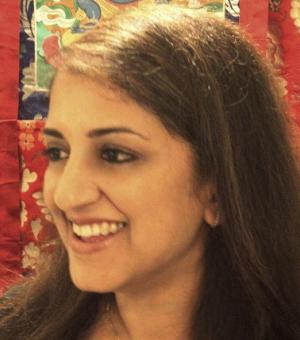 This lecture examines the institution of Freudian psychoanalysis in an international frame, with reference to its inadequate engagement with urban poverty, as seen in the specific context of global cities in India. Using case studies, it will discuss literary and aesthetic representations of poverty in relation to India's psychoanalytic and psychiatric culture, as that culture is manifested in public attitudes toward the psychic life of the poor. The lecture presents research from the India chapter of Professor Mukherjee's third monograph, The Psychic Life of the Poor: A City Unseen in Mumbai, London, and New York.
This lecture examines the institution of Freudian psychoanalysis in an international frame, with reference to its inadequate engagement with urban poverty, as seen in the specific context of global cities in India. Using case studies, it will discuss literary and aesthetic representations of poverty in relation to India's psychoanalytic and psychiatric culture, as that culture is manifested in public attitudes toward the psychic life of the poor. The lecture presents research from the India chapter of Professor Mukherjee's third monograph, The Psychic Life of the Poor: A City Unseen in Mumbai, London, and New York.
Biography
Ankhi Mukherjee is Professor of English and World Literatures and a Fellow of Wadham College. Her first book is Aesthetic Hysteria: The Great Neurosis in Victorian Melodrama and Contemporary Fiction (Routledge, 2007). Her second monograph, What is a Classic? Postcolonial Rewriting and Invention of the Canon, published by Stanford University Press in 2014, won the British Academy Rose Mary Crawshay Prize in English Literature in 2015. Mukherjee has published on a wide range of topics in PMLA, MLQ, Contemporary Literature, Paragraph, Parallax and other peer-reviewed journals, and has co-edited A Concise Companion to Psychoanalysis, Literature, and Culture (Wiley-Blackwell, 2014). She is at work on two projects: her third monograph, The Psychic Life of the Poor: A City Unseen in Mumbai, London, and New York, which examines the relationship between psychoanalysis, race, and poverty in the context of global cities, and a collaborative volume, After Lacan, which she is editing for Cambridge University Press.

Mellon Fellows Symposium (with Sheila Crane, Amanda Phillips, Douglas Fordham)
March 3, 2017
Wilson 142 | 10:00 amMellon Fellows Symposium (with Sheila Crane, Amanda Phillips, Douglas Fordham)
March 3, 2017
Wilson 142 | 10:00 amIHGC Presents
Mellon Fellows Symposium
Friday March 3, 2017
10.00am-1.30pm
142 Wilson Hall
10:00 am - 10:45 am
Sheila Crane, Associate Professor, School of Architecture
"Towards a Non-Aligned Architectural Theory: Notes from the Maghrib"
10:45 am - 11:30 am
Amanda Phillips, Assistant Professor, Department of Art
"Between the Seas: Ottoman Textiles in the Eighteenth Century"
11:30 am - 12:15 pm
Douglas Fordham, Associate Professor, Department of Art
"Aquatint Empires: Medium and Message in Georgian Book Illustration relating to Asia and Africa"
12:15 pm - 1:30 pm
Lunch

Graham Harman workshop and lecture (with NLH)
February 16, 2017
Campbell 158 | 5:00 pmGraham Harman workshop and lecture (with NLH)
February 16, 2017
Campbell 158 | 5:00 pmProfessor Harman is Distinguished Professor of Philosophy at SCI-Arc in Los Angeles and the founder of object-oriented ontology as well as a leading commentator on the work of Bruno Latour. His many books include Tool-Being: Heidegger and the Metaphysics of Objects, Toward Speculative Realism, Prince of Networks: Bruno Latour and Metaphysics, Weird Realism: Lovecraft and Philosophy, and Immaterialism.
Feb 16th at 5pm: Graham Harman will give a lecture “On Knowledge in the Arts and Taste in the Sciences" in Campbell 158 in the Architecture School. (Abstract provided below.)
Feb 17th from 10am-12pm: Harman will participate in a “seminar on formalism” intended mainly for graduate students (others are also welcome) in Wilson 142. If you intend to attend the seminar, please read Harman’s new book Dante’s Broken Hammer pp. 149-249.
“On Knowledge in the Arts and Taste in the Sciences”
In the 2012 essay “The Third Table,” I claimed that objects are irreducible to knowledge of any sort, whether it be knowledge of what a thing is made of or knowledge of what it does. I claimed further that the arts and design are well aware that they produce something other than knowledge, and that philosophy belongs on this side of the fence as well: Socrates’ constant assertions that he knows nothing are not just playful irony, but a direct statement of what philosophy really is. At the same time, I argued that what makes science a form of knowledge is its willingness to paraphrase things in terms of properties that truly belong to them. While this distinction between the arts and the sciences generally holds, we must also consider those cases in which art does transmit knowledge and in which science does yield something like an aesthetic experience. How does this recognition transform the basic concepts developed in “The Third Table”?

Mellon Fellows Symposium (with Camilla Fojas, Mary Kuhn, Jack Chen, Hanadi Al-Samman)
February 10, 2017
Wilson 142 | 9:30 amMellon Fellows Symposium (with Camilla Fojas, Mary Kuhn, Jack Chen, Hanadi Al-Samman)
February 10, 2017
Wilson 142 | 9:30 amIHGC Presents
Mellon Fellows Symposium
Friday February 10, 2017
9.30am-1.30pm
142 Wilson Hall
9:30 am - 10:15 am
Hanadi Al-Samman, Associate Professor, Department of Middle Eastern & South Asian Languages & Cultures
"Queering the Arab Closet"
10:15 am - 11:00 am
Jack Chen, Associate Professor, Department of East Asian Languages, Literatures, & Cultures
"Towards a Literary History of Information in Traditional China"
11:00 am - 11:45 am
Camilla Fojas, Associate Professor, Department of Media Studies
"Techno-Domestics, Telecommunications, and Surveillance across the American Pacific"
11:45 am - 12:30 pm
Mary Kuhn, Assistant Professor, Department of English
"'The vulgar short leaved pine': Forest Industries and the U.S. Literary Landscape in the Late-19th Century”

Oceans of Exchange: Art, Indigeneity and the 21st Century Museum
February 2, 2017
Harrison Small Auditorium | 10:00 am - 2:30 pmOceans of Exchange: Art, Indigeneity and the 21st Century Museum
February 2, 2017
Harrison Small Auditorium | 10:00 am - 2:30 pm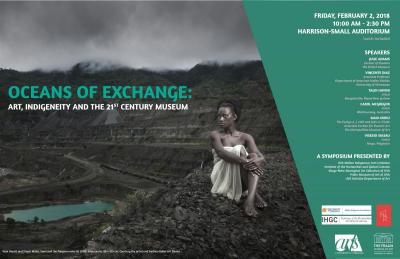

Oceans of Exchange: Art, Indigeneity and the 21st Century Museum
February 2, 2017
Harrison Small Auditorium | 10:00 am - 2:30 pmOceans of Exchange: Art, Indigeneity and the 21st Century Museum
February 2, 2017
Harrison Small Auditorium | 10:00 am - 2:30 pm